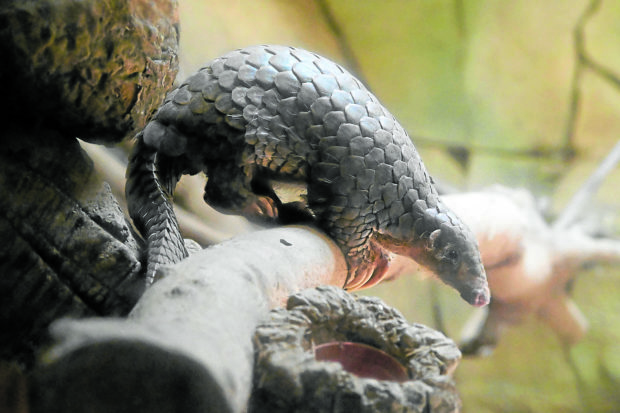China drops pangolin from list of traditional meds

OUT OF THE TRAP Pangolins now have a higher chance of survival in the wild following China’s announcement that pangolin parts have been stricken off its official list of traditional medicines. —AFP
China has removed pangolin parts from its official list of traditional medicines, state media reported Tuesday, days after increasing legal protections on the endangered animal.
Pangolins were left out of the official Chinese Pharmacopoeia this year, along with substances including a pill formulated with bat feces, the state-owned Health Times reported.
The pangolin, the world’s most heavily trafficked mammal, is thought by some scientists to be the possible host of the novel coronavirus that emerged at a market in China’s Wuhan city last year.
No therapeutic value
Its body parts fetch a high price on the black market as they are commonly used in traditional Chinese medicine, although scientists say they have no therapeutic value.
“Depleted wild resources” are being withdrawn from the Pharmacopoeia, Health Times reported, although the exact reason for the removal of pangolins was unclear.
Article continues after this advertisementChina has in recent months banned the sale of wild animals for food, citing the risk of diseases spreading to humans, but the trade remains legal for other purposes—including research and traditional medicine.
Article continues after this advertisementProtected by law
The World Wide Fund for Nature on Saturday said it “strongly welcomed” China’s move to upgrade protections for the pangolin, calling it an “important respite” from the illegal pangolin trade.
Pangolins are the only mammals wholly covered in scales, which serve as protection from predators. When threatened, a pangolin will curl into a tight ball and use its sharp-scaled tails for defense.
All eight pangolin species are protected under national and international laws, but their illegal trade is still growing.
They are in high demand in countries like China and Vietnam where their meat is considered a delicacy and its scales are used in traditional medicine and folk remedies.
A recent report by international wildlife group Traffic showed that from 2017 to 2019, over 96,000 kilograms of pangolin scales were seized from Malaysia, Singapore and Vietnam, representing about 94 percent of total scales confiscated in the region.
According to a study funded by USAID Protect Wildlife, fresh pangolin scales can sell for up to P4,500 per kilo, while dried scales can fetch up to P7,000 per kilo. Pangolin meat can command up to P300 per kilo.
An article from the New York Times published in March said the price of live pangolins has increased from about $7 per pound in the 1990s to around $300 today.